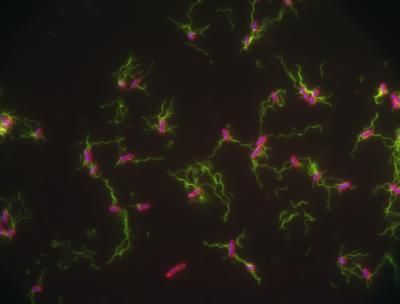Copper Eliminates Resistant Hospital Germs in a Worldwide Field Test
Dangerous Bacteria Infect Three Million People in Europe Every Year
Advertisement
Sometimes something well-tried can also be innovative: already in Ancient Greece, copper was considered to be very antimicrobial. This ability is now playing an important role in the struggle against dangerous hospital germs. In a worldwide noted field test, a whole hospital ward at the Asklepios Clinic in Wandsbek inHamburg, Germany, was equipped with door handles, door plates and light switches made of copper. Because the germs are not only transmitted from one hand to another but, in many cases, also by touching door handles and switches. At the moment, scientists at the University Halle-Wittenberg,Germany, are evaluating the samples of the first study phase.
According to the clinic and the involved scientists at the University Halle-Wittenberg, the first study results have shown "significantly less chances of survival" of microbes on copper surfaces, which is why the field test will be continued in the second half of the year. A complete evaluation is expected by early 2009.
"The struggle against high-resistant agents cannot be won with the previous means, such as the use of new antibiotics and intensive disinfection measures. We must break new grounds in order to reduce the potential danger for our patients," Professor Prof. Dr. med.Jorg Braun, chief physician of the I. Medical Department at the Asklepios Clinic Wandsbek explains the motives for the field test. "Scientific tests performed by several independent working groups have shown beyond doubt that copper surfaces can efficiently kill bacteria and other germs," Prof. Dr.Dietrich H. Nies, Director of the Institute for Biology at the Martin Luther University Halle-Wittenberg,Germany, also confirms.
Comparable studies under clinical conditions are planned or are being performed at the same time in Great Britain, South Africa, the US and Japan.

























































